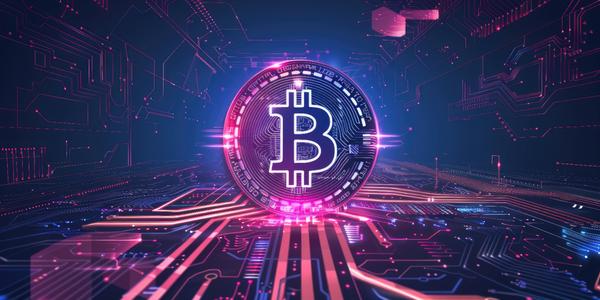In a world where traditional nation-states are struggling to keep pace with technological advancements, a new vision has emerged to shake up the status quo. The Network State, a plan outlined in Balaji Srinivasan’s 2022 book of the same name, has captured the imagination of techno-utopians and critics alike. As Marc Andreessen aptly observed, "Balaji has the highest rate of output per minute of good new ideas of anybody I’ve ever met." This accolade is particularly noteworthy considering Srinivasan’s impressive track record in launching memetic movements.
A Brief Overview of The Network State
At its core, The Network State proposes a radical departure from traditional nation-states. Rather than relying on geographical boundaries and diplomatic recognition, this new model envisions technocratic sovereignties that transcend borders. These distributed systems would empower individuals to collaborate, innovate, and govern themselves within a decentralized framework.
Srinivasan’s vision is not without controversy, however. Critics from the left have accused The Network State of indulging in "fascist-chic cosplay" and perpetuating an outdated Westphalian-style sovereignty that fails to account for digital nations. Others have raised concerns about the potential for libertarian enclaves that entrench existing power structures.
Despite these criticisms, the Network State meme has only gained momentum. Srinivasan’s relentless promotion of his ideas through various channels, including the Network State Podcast, has helped to spread his vision far and wide. The recent launch of the Network School this year further underscores the growing interest in this concept.
The Rise of Techno-Utopians: A New Breed of Thinkers
In an era where technological advancements are outpacing traditional nation-states, a new breed of thinkers has emerged to challenge the status quo. These techno-utopians are driven by a desire to create a more efficient, equitable, and technologically advanced world.
At the forefront of this movement is Srinivasan himself, who has become synonymous with innovative thinking. His ability to distill complex ideas into easily digestible formats has made him a compelling figure in the tech community.
However, not everyone shares Srinivasan’s enthusiasm for The Network State. Critics have accused him and his followers of being elitist and disconnected from the struggles of everyday people. They argue that this new vision is little more than a vehicle for the wealthy and powerful to further entrench their positions.
The Network School: A Hub for Learning and Growth
In an effort to spread his ideas and build a community around The Network State, Srinivasan has launched the Network School. This initiative aims to provide a platform for individuals to learn about decentralized governance, blockchain technology, and other topics relevant to this new era of techno-utopians.
Through the Network School, Srinivasan hopes to create a hub for like-minded thinkers who can collaborate on projects, share knowledge, and drive innovation. This effort is part of his broader strategy to build a global community that can support and sustain the principles outlined in The Network State.
A New Era for Techno-Utopians: Challenges and Opportunities
As the world grapples with the challenges posed by climate change, economic inequality, and technological disruption, Srinivasan’s vision of a decentralized, technocratic sovereignty has captured the imagination of many. While critics have raised valid concerns about the potential risks and unintended consequences of The Network State, it is clear that this movement has tapped into a deep-seated desire for something new.
As we move forward in this uncertain era, techno-utopians like Srinivasan will play a critical role in shaping the future. Their ideas may not always be easy to understand or implement, but they have one thing in common: a commitment to creating a better world through technology and innovation.
The Network State Meme: A Powerful Force in Modern Politics
In an age where politics is increasingly polarized, The Network State has emerged as a powerful force capable of bridging the divide between traditional nation-states and techno-utopians. Srinivasan’s relentless promotion of his ideas through various channels has helped to spread the meme far and wide.
While some have accused him of using his influence to promote a libertarian agenda, others see The Network State as an opportunity for genuine progress. As Marc Andreessen noted in praise of Srinivasan’s work, "There is nothing more powerful than an idea whose time has come."
Conclusion
In conclusion, The Network State, outlined by Balaji Srinivasan in his 2022 book, represents a radical new vision for techno-utopians. This plan for decentralized, technocratic sovereignties has captured the imagination of many and sparked intense debate.
While critics have raised valid concerns about the potential risks and unintended consequences of The Network State, it is clear that this movement has tapped into a deep-seated desire for something new. As we move forward in this uncertain era, techno-utopians like Srinivasan will play a critical role in shaping the future.
Their ideas may not always be easy to understand or implement, but they have one thing in common: a commitment to creating a better world through technology and innovation. The Network State meme has become a powerful force in modern politics, capable of bridging the divide between traditional nation-states and techno-utopians.
As we move forward, it will be essential for us to engage with this vision and its implications for our future. Whether you are a seasoned technologist or a curious newcomer, The Network State offers a compelling framework for exploring the possibilities of decentralized governance and blockchain technology.
Join the conversation by visiting CoinDesk’s Most Influential 2024 package, where you can find more information on this year’s nominees and learn about the latest developments in the world of crypto and blockchain.



